Filter by

Nostalgia for the Present
Anthropology and photography have been linked since the nineteenth century, but their relationship has never been entirely comfortable—and has grown less so in recent years. Nostalgia for the Present aims to repair that relationship by involving intentional participants in an inclusive conversation; it is the fruit of a collaboration among an ethnographer, a photographer, a group of Moroccan …
- Edition
- -
- ISBN/ISSN
- 9789087282110
- Collation
- -
- Series Title
- -
- Call Number
- 770 DES n

Mana Māori. The Power of New Zealand’s First Inhabitants
This book takes you on a journey exploring the histories of the country's first Polynesian discoverers, its encounters with Europeans and the subsequent settling by Westerners. Particular attention will be paid to the Dutch explorer Abel Tasman and the Dutch immigration wave of the 1950s. Through a discussion of the meeting house and meeting grounds, the relationships Maori maintain to the land…
- Edition
- -
- ISBN/ISSN
- 9789087280833
- Collation
- -
- Series Title
- -
- Call Number
- 301 VEY m
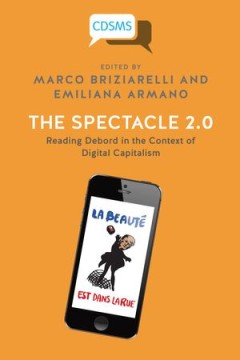
The Spectacle 2.0
Spectacle 2.0 recasts Debord's theory of spectacle within the frame of 21st century digital capitalism. It offers a reassessment of Debord’s original notion of Spectacle from the late 1960s, of its posterior revisitation in the 1990s, and it presents a reinterpretation of the concept within the scenario of contemporary informational capitalism and more specifically of digital and media labour…
- Edition
- -
- ISBN/ISSN
- 9781911534440
- Collation
- -
- Series Title
- -
- Call Number
- -
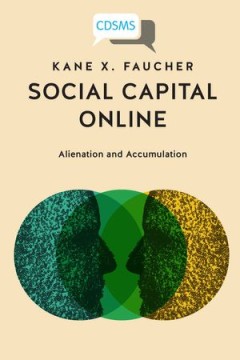
Social Capital Online
What is ‘social capital’? The enormous positivity surrounding it conceals the instrumental economic rationality underpinning the notion as corporations silently sell consumer data for profit. Status chasing is just one aspect of a process of transforming qualitative aspects of social interactions into quantifiable metrics for easier processing, prediction, and behavioural shaping. A work of…
- Edition
- -
- ISBN/ISSN
- 9781911534570
- Collation
- -
- Series Title
- -
- Call Number
- -
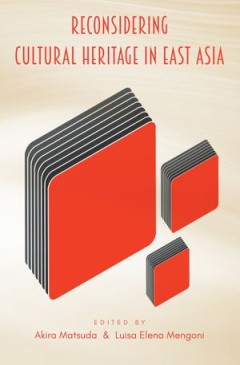
Reconsidering Cultural Heritage in East Asia
The concept of ‘cultural heritage’ has acquired increasing currency in culture, politics and societies in East Asia. However, in spite of a number of research projects in this field, our understanding of how the past and its material expressions have been perceived, conceptualised and experienced in this part of the world, and how these views affect contemporary local practices and notions …
- Edition
- -
- ISBN/ISSN
- 9781909188891
- Collation
- -
- Series Title
- -
- Call Number
- 301 REC r
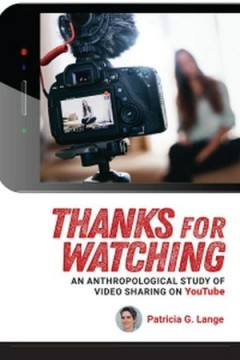
Thanks for Watching: An Anthropological Study of Video Sharing on YouTube
YouTube hosts one billion visitors monthly and sees more than 400 hours of video uploaded every minute. In “Thanks for Watching,” Patricia Lange offers an anthropological perspective on this heavily mediated social environment, demonstrating how core concepts from anthropology—participant-observation, reciprocity, and community—apply to sociality on YouTube and how to reconceptualize an…
- Edition
- -
- ISBN/ISSN
- 9781607329473
- Collation
- -
- Series Title
- -
- Call Number
- 301 LAN t
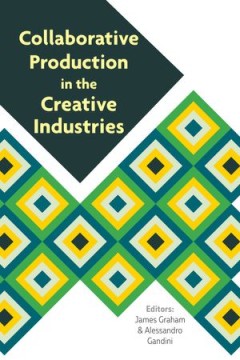
Collaborative Production in the Creative Industries
In recent years research into creative labour and cultural work has usually addressed the politics of production in these fields, but the sociotechnical and aesthetic dimensions of collaborative creative work have been somewhat overlooked. This book aims to address this gap. Through case studies that range from TV showrunning to independent publishing, from the film industry to social media pla…
- Edition
- -
- ISBN/ISSN
- 9781911534280
- Collation
- -
- Series Title
- -
- Call Number
- -

Bubbles and Machines
Are financial crises embedded in IT? Can gender studies offer insights into financial reporting? Feminist theories and Science and Technology Studies (STS) can enrich a critique of financial crises in capitalism as the author argues their critical, political economic approaches to communication can help in understanding because they historicize technology and economy and how these are materiall…
- Edition
- -
- ISBN/ISSN
- 9781912656011
- Collation
- -
- Series Title
- -
- Call Number
- -

The Logic of Invention
In this long-awaited sequel to The Invention of Culture, Roy Wagner tackles the logic and motives that underlie cultural invention. Could there be a single, logical factor that makes the invention of the distinction between self and other possible, much as specific human genes allow for language? Wagner explores what he calls “the reciprocity of perspectivesâ€_x009d_ through a journey …
- Edition
- -
- ISBN/ISSN
- 9780999157053
- Collation
- -
- Series Title
- -
- Call Number
- 301 WAG l

Children as Caregivers: The Global Fight Against Tuberculosis and HIV in Zambia
The global public health community has focused care and funding on TB and HIV in Zambia, but adult policy-makers, doctors, and humanitarians often ignore children's perspectives as they confront infectious diseases. Well-intentioned practioners fail to realize how children take on active caregiving roles when their guardians become seriously ill. Using ethnographic methods, and listening to the…
- Edition
- -
- ISBN/ISSN
- 9780813588049
- Collation
- -
- Series Title
- -
- Call Number
- 301 HUN c
 Computer Science, Information & General Works
Computer Science, Information & General Works  Philosophy & Psychology
Philosophy & Psychology  Religion
Religion  Social Sciences
Social Sciences  Language
Language  Pure Science
Pure Science  Applied Sciences
Applied Sciences  Art & Recreation
Art & Recreation  Literature
Literature  History & Geography
History & Geography